Exploring the Weird: History Podcasts Unveiled
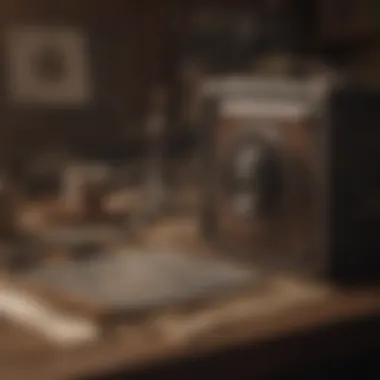
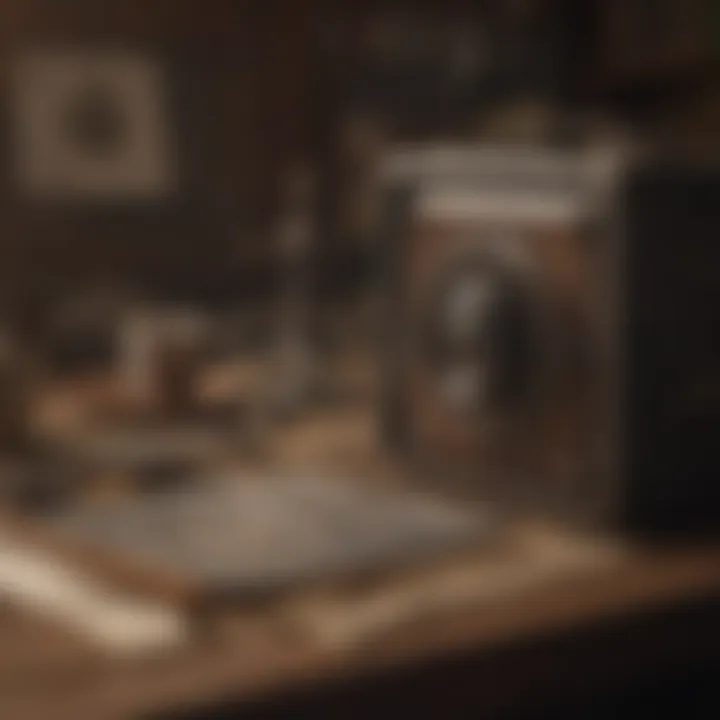
Intro
The landscape of history storytelling is diversifying, giving birth to a unique niche within the podcasting arena: the weird history podcast. This genre draws in curious minds who seek to uncover the lesser-known and often bizarre aspects of history, presenting narratives that diverge from the traditional recounting of events. The charm of these shows lies in their ability to blend education with entertainment, making the exploration of past oddities not just informative but thrilling.
In this article, we will delve into the fascinating realm of weird history podcasts. We will analyze their appeal, examine how they utilize unique storytelling techniques, and explore their impact on cultural knowledge. The podcasts we discuss showcase a variety of themes and approaches, highlighting how they can reveal the unexpected corners of history.
From unusual events to enigmatic personalities, these podcasts challenge established perceptions of historical events, making learning engaging. In doing so, they foster a sense of connection, bridging the gap between the past and the present. Readers will find insights into how these narratives resonate with audiences and contribute to a richer understanding of our shared history.
As we proceed, we shall consider specific podcasts that represent this genre, uncovering what makes them special and how they manage to captivate listeners.
By the end of this exploration, the audience will gain a better grasp of how weird history podcasts not only entertain but also enrich our comprehension of the world.
Unique Storytelling Techniques
Podcasts thrive on storytelling. In the weird history genre, the narrative style often plays a pivotal role in engaging the listener.
These techniques include:
- Engaging anecdotes that captivate the listener's attention.
- Sound effects and music that set the mood and enhance the experience.
- Expert interviews that provide depth and credibility to the stories.
- Narration styles that blend humor with facts, keeping the content light yet informative.
One notable example is Lore, which blends folklore with historical elements to weave stories that delve into darkness and intrigue. The skillful narration and atmospheric sound design draw listeners into each episode, making it a staple in the genre.
Cultural Impact
Weird history podcasts serve a significant role in the broader cultural context. By focusing on quirky and forgotten aspects of history, they challenge conventional narratives. This often leads listeners to reflect on the complexities of historical events.
- These podcasts offer a fresh perspective on societal norms and values.
- They provide a platform for marginalized stories and unfamiliar figures in history.
- The genre encourages curiosity, prompting listeners to conduct further research.
"Historically, the narratives told are often from dominant perspectives, but weird history podcasts ensure that lesser-known voices and stories are not silenced."
Through the exploration of oddities, listeners become more aware of the diverse and multifaceted tapestry of human history.
Finale
Understanding the realm of weird history podcasts involves recognizing their unique contributions to historical discourse. By investigating lesser-known narratives, these podcasts foster an environment of inquiry and appreciation for the complexities of our past. As we continue to explore several standout shows and their offerings, we encourage readers to engage fully with the weird and wonderful side of history, inviting a richer and more nuanced view of what it means to learn from our collective experiences.
Understanding Weird History
Weird history, as a sub-genre, presents an essential perspective that invites exploration beyond mainstream narratives. It offers insights into unconventional stories, strange events, and lesser-known figures that have shaped our world. This article examines the significance of weird history in the context of podcasts. In this digital age, podcasts have become a powerful medium for engaging with history, allowing listeners to delve deeper into topics that traditional formats may overlook. Through this medium, history becomes not just a set of dates and facts, but a tapestry of impactful tales that broaden our understanding of the past.
Defining Weird History
Defining weird history requires an appreciation for the unusual, peculiar, and sometimes bizarre events that often fall outside of conventional historical discourse. Unlike mainstream history, which tends to focus on prominent individuals and major events, weird history examines narratives that might seem insignificant or absurd on the surface but reveal deeper truths about human nature and society. These stories can include unusual occurrences, strange customs, or even odd professions that challenge our preconceived notions of what history entails. This intriguing lens encourages listeners to rethink the traditional boundaries of history, prompting a more comprehensive understanding of our collective past.
Characteristics of Weird History
The characteristics of weird history are numerous and distinctive.
- Unconventional Narratives: Weird history often revolves around stories that challenge the status quo. It embraces absurdity and peculiarities, offering a fresh angle on historical events.
- Emphasis on Lesser-Known Figures: Many weird history podcasts highlight individuals whose contributions have been overlooked, providing a voice to those who might be forgotten in mainstream discourse.
- Exploration of Cultural Anomalies: This aspect deals with cultural practices or beliefs that seem strange or irrational. It illuminates how these elements play a role in shaping societies and their histories.
- Interdisciplinary Approach: Weird history connects various fields such as anthropology, sociology, and psychology. This blend allows for a comprehensive exploration of human experiences throughout time.
- Engagement Through Storytelling: The narrative techniques used in these podcasts draw audiences in. They often use humor, suspense, or mystery to make the content relatable and memorable.
In summary, understanding weird history enrichens our comprehension of the past, inviting listeners to question established narratives and appreciate the complexity of human histories. This section prepares the groundwork for a detailed exploration of how podcasts have revolutionized the presentation and appreciation of weird history.
The Evolution of History Podcasts
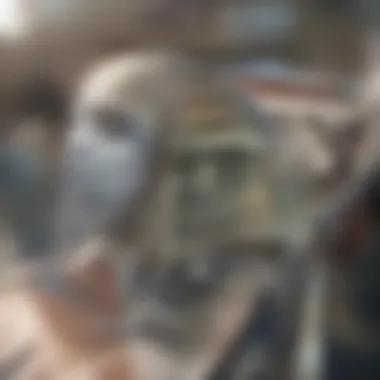
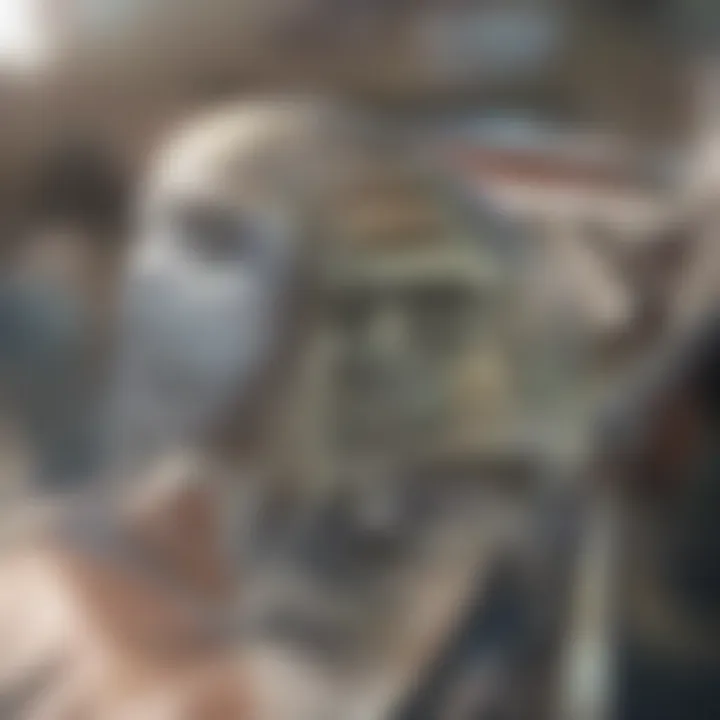
The evolution of history podcasts marks a significant shift in how audiences engage with historical narratives. Historically, history was mostly confined to textbooks, documentaries, and lectures. However, the advent of podcasting has democratized the way history is consumed. This transition is crucial as it reflects modern consumption habits and shifting cultural norms. In a world that values convenience and accessibility, podcasts have emerged as a primary medium for educational entertainment.
The Rise of the Podcast Medium
The rise of the podcast medium began in the early 2000s but gained substantial traction after the smartphone revolution. With the ability to listen on-the-go, users found a new way to consume content while multitasking. In addition, platforms like Apple Podcasts and Spotify streamlined the experience, making it easier to discover new shows.
Podcasting's flexibility allows creators to explore unique angles on history that traditional formats may overlook. This is where weird history finds its place. Unconventional topics can become mainstream. Listeners can explore absurdities from the past, forgotten events, or even bizarre individuals who left their mark. The format encourages experimentation, which fosters creativity and encourages new ideas.
With the integration of storytelling techniques, hosts often elevate dry historical facts into engaging narratives. The accessibility of this medium invites a wider range of audiences. People who may have not engaged with history through traditional means can find a podcast that resonates with their interests.
How Podcasts Have Changed Historical Narrative
Podcasts have transformed historical narrative in many ways. They’ve created a space where eclectic and niche stories can thrive. Unlike textbooks, which often focus on well-trodden paths, podcasts can shine a light on lesser-known aspects of history. This approach helps in reshaping public understanding of significant events by adding context that might have been missed in conventional education.
Furthermore, podcasts tend to emphasize the human experience, offering personal connections to events that statistics and dates cannot convey. Many podcasts include interviews with historians or experts, giving depth and credibility to their claims. This blend of narrative and expert commentary cultivates an environment where history feels lively and relevant.
"Podcasts simultaneously entertain and educate, making history accessible and engaging for a modern audience."
The influence of this medium extends beyond casual listening. It encourages conversation and debate about historical interpretations. This dialogue contributes to a culture where questioning established narratives becomes not only acceptable but commonplace. With that, podcasters help democratize history. They challenge the notion that history is only for scholars, showing that it belongs to everyone.
Popular Weird History Podcasts
The exploration of weird history podcasts offers a fascinating perspective on how unconventional topics are presented in the podcasting realm. These shows do more than entertain; they captivate audiences by revealing hidden narratives, quirky tales, and lesser-known figures that challenge conventional historical narratives. The significance of these podcasts lies in their ability to blend education with entertainment, attracting listeners who may not seek traditional history programming.
The History of Philosophy Without Any Gaps
"The History of Philosophy Without Any Gaps" is a noteworthy podcast that provides a continuous and comprehensive overview of philosophical thought. Each episode covers a particular thinker or theme, eliminating gaps that often exist in academic discourse. This podcast stands out for its meticulous approach to historical accuracy while making complex ideas accessible to a general audience.
Listeners engage with the development of philosophy from its early beginnings to modern concepts, encountering thinkers like Kant and Nietzsche. The detailed analysis not only enriches understanding but also provides context that helps listeners appreciate the evolution of thought. This deep connection to history invites a broader discussion about the implications of philosophical ideas on contemporary issues.
Lore
"Lore" stands as a hallmark in the genre, blending folklore with historical accounts. Hosted by Aaron Mahnke, this podcast delves into the strange and unusual aspects of human history and culture. Each episode focuses on a particular tale or legend, exploring its historical roots and relevance.
The storytelling technique employed in "Lore" serves to engage listeners, intertwining fact with fiction. The narratives often highlight the darker elements of history, compelling audiences to think critically about the past. This distinctive combination of history and horror attracts a diverse listener base, making it one of the most popular weird history podcasts.
Drunk History
"Drunk History" presents a unique take on historical storytelling. In each episode, a guest narrates a historical event while inebriated, leading to humorous yet surprisingly informative retellings. This format not only entertains but also allows for a fresh perspective on historical events, often shedding light on overlooked details.
The show cleverly juxtaposes comedic elements with factual historical accounts. While it may not adhere strictly to traditional methods of historical presentation, "Drunk History" serves a purpose. It engages audiences in discussions about historical significance, memory, and interpretation. By combining laughter with learning, it invites listeners to reconsider preconceived notions about the past.
The allure of weird history podcasts lies not only in the stories themselves but also in how they provoke critical thought and encourage exploration beyond the familiar confines of traditional history.
Unique Storytelling Techniques
The incorporation of unique storytelling techniques serves as a pivotal factor in the appeal of weird history podcasts. These innovative approaches not only engage the audience but also help in presenting historical content in a more relatable and stimulating manner. As listeners seek interesting narratives, these podcasts excel by transforming conventional historical accounts into captivating experiences.
Combining Humor and Education
One effective method utilized by some weird history podcasts is the combination of humor and education. Humor can break down barriers that often deter people from engaging with history. When a presenter injects wit or irony into narratives about events or figures that may seem dull or complex, it tends to pique interest. This aligns with the common notion that learning should not be a chore.
Podcasts that harness this dual approach manage to do several things:
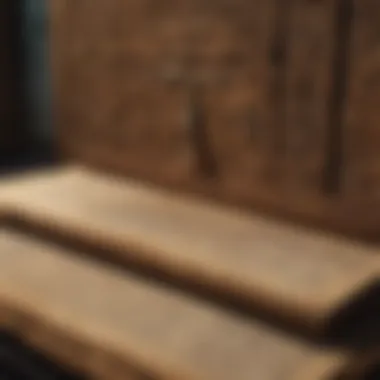
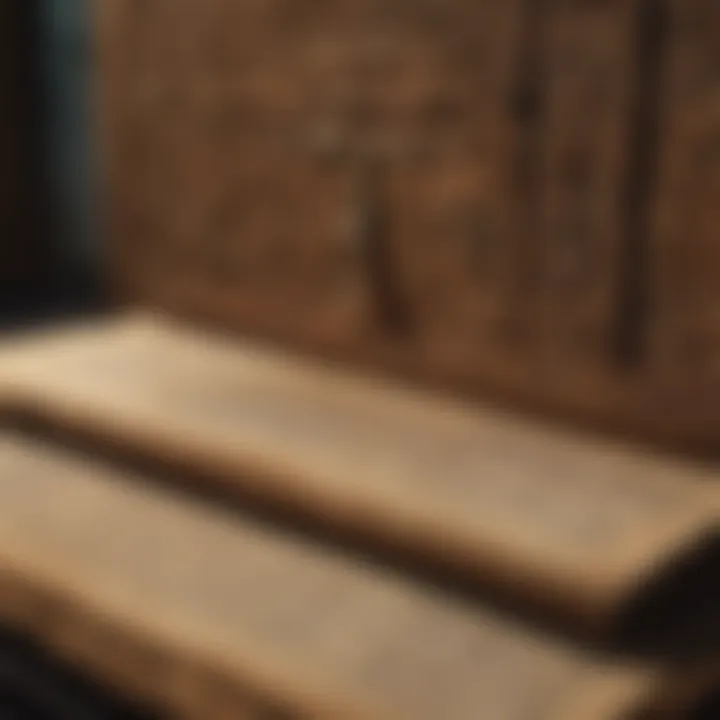
- Enhance Engagement: Laughter fosters a bond between the presenter and listeners, making the experience enjoyable.
- Facilitate Retention: Humor has a unique way of making information stick. Listeners are more likely to remember facts when they are presented in a light-hearted manner.
- Challenge Conventional Views: By comedy, certain myths and misunderstandings regarding history can be tackled. This opens up avenues for deeper understanding and reflection among audiences.
As an example, the podcast "Drunk History" employs humor by presenting historical events through the lens of intoxicated storytelling. While this format might seem trivial at first glance, it cleverly captures the absurdity of history and helps illustrate complex narratives in an entertaining way.
Utilizing Narrative Structures
Another notable technique in weird history podcasts is the use of distinct narrative structures. By crafting stories in a way that resonates with the audience, podcasters can drive engagement through emotional connection and suspense. These structures often include elements such as:
- Chronological Narration: Following events in a linear timeline can help listeners understand the sequence and causes behind historical events, while making the narrative easier to follow.
- Nonlinear Storytelling: Jumping around in time can create a layered experience. This technique allows the melding of various perspectives and background information, which might enhance critical thinking and cultural knowledge.
- Character-Driven Narratives: Focusing on compelling individuals within historical contexts can humanize events, leading listeners to relate more directly to the figures discussed.
By using these narrative frameworks, podcasts can create immersive experiences that resonate on emotional and intellectual levels. Listeners are not simply absorbing facts; they are following journeys, feeling emotions, and experiencing a different era through engaging storytelling.
Ultimately, the combination of humor with effective narrative structuring transforms what could be dry historical accounts into dynamic discussions that appeal to a broader range of audiences.
The success of these storytelling techniques supports the notion that history can be both enlightening and entertaining.
Impacts on Popular Culture
Weird history podcasts have emerged as a unique cultural phenomenon. They do not just entertain; they reshape how we understand history and its relevance in contemporary society. The way these podcasts engage with unusual topics makes them instrumental in both education and cultural discourse. By transforming obscure historical events into relatable narratives, these podcasts offer a fresh perspective that often diverges from traditional historical narratives. This invites listeners to explore histories that might otherwise go unnoticed.
Influences on Literature and Media
The influence of weird history podcasts extends into literature and other media. Many podcasts inspire authors to weave unusual historical elements into fiction or non-fiction works. As a result, listeners discover a wealth of ideas and reference points for their own creative endeavors. Podcasts often generate discussions that find their way into articles, essays, and even documentaries, enriching the media landscape. This interconnectivity fosters a culture where weird history becomes a topic of literary exploration.
Moreover, these podcasts derive inspiration from books and vice versa, creating an ongoing feedback loop. When historical oddities gain traction in podcasts, publishers may see an opportunity to release new titles that align with these interests. For example, titles like Sapiens: A Brief History of Humankind by Yuval Noah Harari offer a broad yet thought-provoking exploration of history that aligns well with podcast content. These connections help to bridge gaps between various forms of storytelling, facilitating a more comprehensive cultural understanding.
Fostering a New Generation of History Enthusiasts
Weird history podcasts play a significant role in fostering a new generation of history enthusiasts. The unique way these podcasts present information captivates younger audiences, making history appealing and engaging. The informal style combined with intriguing content sparks curiosity, encouraging more people to explore various historical narratives outside of traditional educational settings.
These podcasts also encourage critical thinking. Listeners learn to appreciate diverse perspectives and question established narratives. This can lead to a more nuanced understanding of history. Young audiences who might find conventional history classes dry and uninviting are often drawn to the vivid storytelling in podcasts. Their interest in history can translate into academic pursuits or personal exploration of historical topics.
By emphasizing not just well-known events but also neglected narratives, weird history podcasts democratize history. They invite people to see themselves as part of the historical conversation rather than passive recipients of knowledge. This shift enhances cultural awareness and helps create a more informed citizenry.
"Weird history podcasts encourage listeners to dig deeper into knowledge, opening up new pathways to engage with the past."
Challenges for Weird History Podcasts
The landscape of weird history podcasts is both exciting and daunting. While these podcasts offer unique stories that attract listeners, they also face significant challenges. Understanding these challenges is crucial for creators and audiences alike. It demonstrates the delicate balance between entertaining storytelling and the obligation to present accurate historical facts. This section will unpack the key difficulties faced by these audio narratives, focusing on maintaining naccurate historical integrity and competing effectively with mainstream history narratives.
Maintaining Historical Accuracy
In the realm of weird history podcasts, historical accuracy is paramount. Listeners trust creators to present facts and insightful analysis. When podcasts veer into exaggeration or fabrication, they risk losing credibility. Furthermore, misrepresenting historical events can perpetuate misconceptions. For example, a podcast might dramatize an event or highlight obscure figures without thorough research. This can not only misinform current listeners but also distort historical understanding for future generations.
Adhering to rigorous standards of research ensures that weird history remains credible while still exploring unconventional narratives. Content creators are often faced with a dilemma: how to retell stories in a gripping manner while ensuring the data remains factual. Additionally, they must consider how they can balance the quirky or bizarre aspects with a serious treatment of real events.
In this light, unique sourcing and incorporating expert voices can bolster a podcast's reliability. Inviting historians or academics to verify narratives will both educate the host and enhance audience trust. Such steps affirm a commitment to the truth while preserving the engaging elements that define weird history.
Competing with Mainstream History Narratives
Weird history podcasts often find themselves at odds with mainstream history narratives. Major networks and established historians usually create content that follows traditional formats and styles. This leaves little room for the absurd or unusual stories that define the genre of weird history. Competing against these polished productions poses a significant challenge for niche podcasts.
However, this challenge also presents an opportunity. Weird history podcasts can capitalize on the diverse interests of listeners who seek alternative stories that mainstream media might overlook. Emphasizing the unique and lesser-known dimensions of history allows these podcasts to carve out a distinct niche. The key is to find an authentic voice and engage an audience that craves something beyond the conventional.

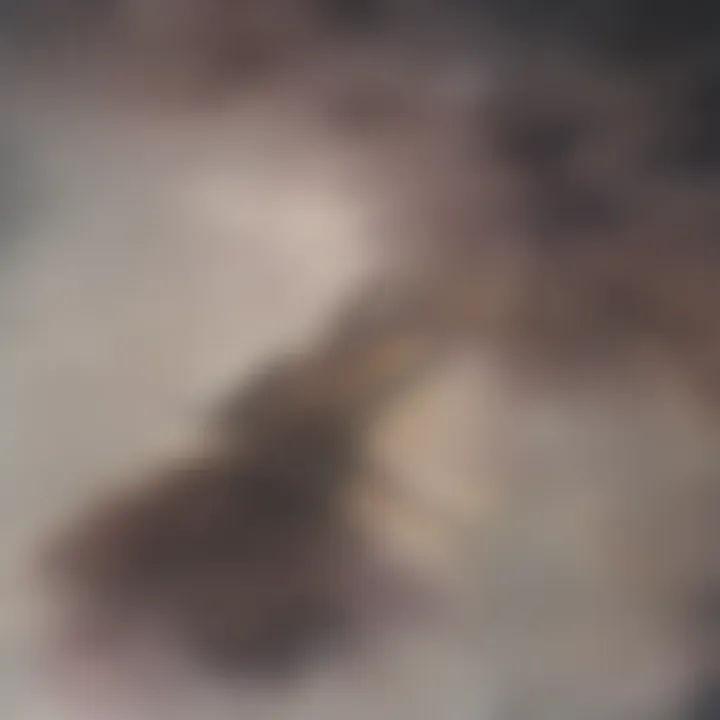
It's also important for creators to engage on social media platforms, where they can foster community among listeners. Sharing intriguing snippets or encouraging discussions can draw new audiences and help smaller podcasts gain visibility.
"Engagement and innovation are critical for weird history podcasts to rise above the noise of the dominant narratives."
Acknowledging the challenges faced by weird history podcasts provides valuable insight into their development. Striking a balance between engaging storytelling and historical truth is essential for creators. The podcasts that succeed in this will ultimately contribute to a richer, more nuanced understanding of history.
The Role of Community Engagement
Community engagement is a fundamental aspect of weird history podcasts. It shapes how content is created and consumed. Listeners do not just absorb information; they actively participate in the discussion and creation of content. This engagement fosters a deeper connection between the podcast creators and their audience.
One key component is listener contributions and feedback. When listeners share their thoughts, suggestions, or personal stories, it enhances the podcast's richness. This feedback loop allows creators to tailor their content to better meet the interests of their audience. Moreover, the incorporation of listener stories can introduce diverse perspectives, leading to a more comprehensive understanding of historical events.
Additionally, social media plays a significant role in facilitating podcast interaction. Platforms like Reddit and Facebook offer spaces where listeners can discuss episodes, share insights, and connect with each other. This creates a sense of community that extends beyond the audio content. Engaging in these forums allows listeners to ask questions and clarify points, thus deepening their understanding of the topics presented.
"The strength of a podcast lies not only in its content but also in its community. Engaged listeners make the history come alive."
As podcasts increasingly rely on automation and algorithm-driven recommendations, the human touch of community becomes even more precious.
Future Trends in Historical Podcasting
As history podcasts continue to grow in popularity, it is essential to explore the future trends that may shape this medium. Given the ever-changing landscape of technology and audience preferences, these trends will have significant implications for content creation.
Understanding these trends not only prepares podcasters for the road ahead but also informs audiences about what to expect in the coming years. Embracing these changes can enhance the listening experience and introduce new dimensions to historical narratives.
Technological Innovations and Their Effects
The influence of technological innovations on historical podcasts cannot be overstated. Emerging tools and platforms contribute to content quality and accessibility. Here are some key aspects of these innovations:
- Improved Audio Quality: Enhanced recording equipment and editing software allow hosts to produce clearer and more professional-sounding audio.
- Distribution Channels: With advancements in streaming technology, listeners can access podcasts from various devices, allowing for increased reach and flexibility in listening habits.
- Interactive Elements: Innovations such as augmented reality (AR) and virtual reality (VR) are beginning to make their way into podcasting. Audiences can experience historical events in immersive ways that strengthen their connection to the subject matter.
The influence of these technologies shapes the creative process. Podcasters can develop richer narratives that engage listeners on multiple levels.
Potential New Themes and Topics
As the landscape of history podcasting evolves, so do the themes and topics presented. Creators are beginning to explore territories previously overlooked. Here are some potential new themes:
- Underrepresented Histories: There is a growing interest in topics that feature marginalized voices, offering a more nuanced understanding of historical events.
- Environmental History: This theme examines the relationship between humans and the natural world, exploring significant environmental events in a historical context.
- Cultural Exchanges: Topics that delve into the interactions between different cultures offer unique perspectives on history, showcasing the interconnectedness of societies.
Embracing these fresh angles will not only diversify the content available to listeners but also encourage deeper engagement with history. As more creators explore these ideas, the podcasting medium can continue to enrich our understanding of the past.
"History podcasts provide an exceptional platform for unconventional stories that illuminate the complexities of the human experience."
By anticipating and adapting to these future trends, podcast creators can maintain relevance and capture the curiosity of their audience. This effort will undoubtedly foster a richer landscape for historical podcasts in the years to come.
The End
The conclusion serves as the culmination of our exploration into weird history podcasts. It is important for several reasons, primarily because it encapsulates the broader implications of how these podcasts influence public perceptions of history. These audio narratives have transformed traditional storytelling. The blend of entertainment and education in these formats promotes engagement with historical themes, often overlooked in conventional learning environments.
Reflecting on the Impact of Weird History Podcasts
Weird history podcasts have created a paradigm shift in how history is consumed and appreciated. They challenge the conventional narrative by exposing listeners to the unusual and eccentric aspects of our past, often the parts that escap mainstream discourse.
Listeners are not merely passive recipients of information; they engage actively with the content, allowing for deeper connections to historical events and figures. Many listeners report a heightened curiosity about history, driven by the compelling stories and unusual facts presented. This type of engagement can lead to further research, a deeper understanding of context, and enrichment of personal knowledge.
"Podcasts offer a unique opportunity to learn. They present history with a narrative flair that can energize even the most mundane facts."
Moreover, these podcasts often showcase lesser-known figures and events, broadening our understanding of what constitutes historical significance. For instance, podcasts like Lore explore the narratives surrounding folklore and legends, intertwining them with factual histories that remain unexplored in traditional educational settings.
The impact of weird history podcasts extend beyond individual learning experiences. They contribute to discussions about cultural memory and historical priorities, shaping how future generations will understand and appreciate the complexities of the past. Therefore, reflecting on their influence allows us to recognize their value in fostering a more inclusive historical narrative.





